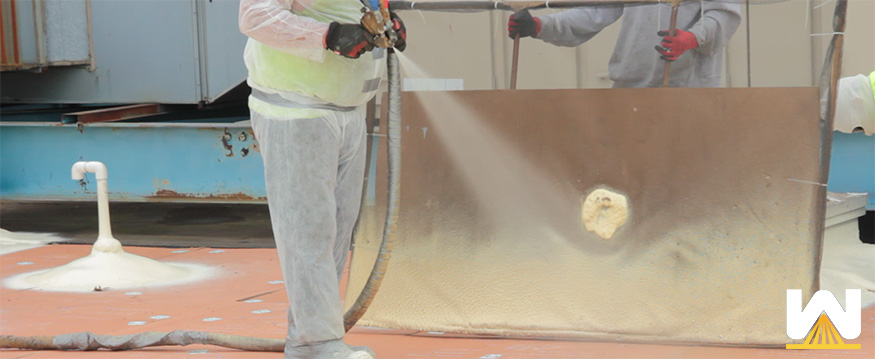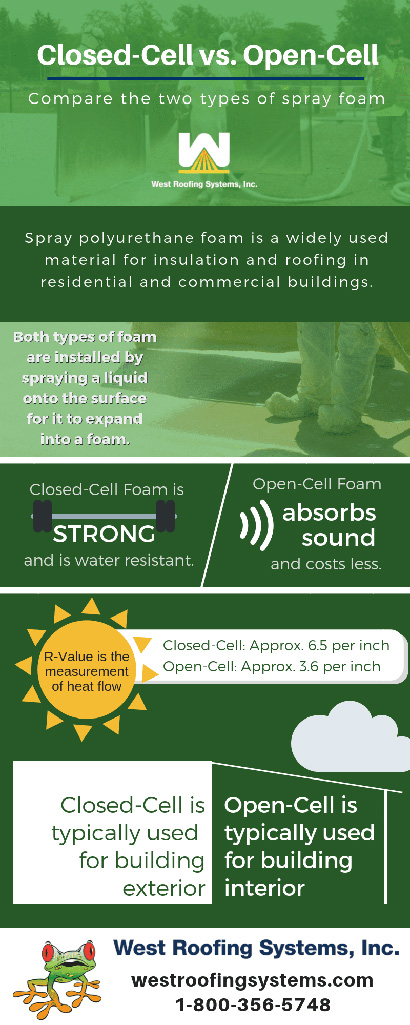Spray foam roofing can solve your commercial building’s toughest challenges, inside and out. Regarding spray foam, a few options depend on your project requirements.
We’ve installed over 65,000,000 sq. feet of roofing domestically and internationally, and during that time, we helped business owners protect their facilities with spray foam.
This article covers the difference between open and closed-cell spray foam.
What is Spray Foam?
Spray Polyurethane Foam Roofing, or spray foam roofing, is a material that is sprayed as a liquid so that it can expand into a foam. While SPF roofing is not the most known type of insulation and roofing material, the technology has been around since the early 1960s for industrial, commercial, and residential facilities.
Closed Cell Spray Foam

Closed Cell spray foam is made of cells that are encapsulated and pressed tightly together to prevent air and moisture penetration inside the foam.
More common of the two types of spray foam, closed cell is mostly used for commercial roofing. While it may be costlier to install, it saves the building owner money in the long run from sustainability and energy savings long-term.
Benefits of Closed Cell Spray Foam:
- Higher R-value (6.5 and higher)
- Better Insulation
- Resistant to Water Degradation
- Water Resistance Helps Prevent Mold
- Strong Material that can strengthen walls/roofs structure
Open Cell Spray Foam
Open Cell spray foam is made of open cells that are softer and flexible, with a physical structure similar to that of a sponge.
Less common of the two types of spray foam, open cell is mostly used for residential and commercial insulation. The open cell material is more affordable than closed cell and expands more, making it an excellent material for tight spaces and areas with nooks and crannies.
Benefits of Open Cell Spray Foam:
- Lightweight
- Blocks Out Sound
- More Affordable
- More Expansion

Spray Polyurethane Foam Roofing Systems are becoming the go-to roofing for commercial, industrial, and even residential facilities that are looking for a long-lasting, economically efficient option. From installation and throughout your warranty, the savings of your new SPF can pay off the roof system and save you money down the road.


